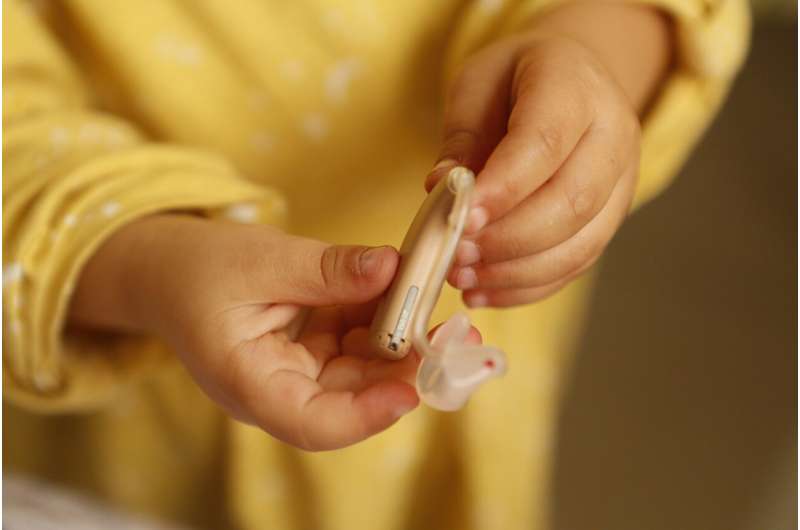Hearing Aids and Cochlear Implants Boost Social Connection and Quality of Life

Hearing aids and cochlear implants significantly enhance social engagement and reduce isolation in adults with hearing loss, promoting better overall well-being.
Hearing loss extends beyond impaired hearing; it significantly impacts social interaction and overall well-being. A recent study conducted by researchers at the USC Caruso Department of Otolaryngology—Head and Neck Surgery, part of Keck Medicine of USC, highlights the positive influence of hearing devices such as hearing aids and cochlear implants on social engagement among adults with hearing loss. Published in JAMA Otolaryngology—Head & Neck Surgery, this research is pioneering in establishing a clear link between hearing assistance devices and enhanced social lives.
According to lead researcher Dr. Janet Choi, adults using hearing aids or cochlear implants tend to be more socially active and experience less social isolation compared to those who do not use these devices. "Our findings suggest that fitting individuals with appropriate hearing devices can be a crucial step in preventing social disconnection and mitigating the broader health risks associated with untreated hearing loss," she explains.
With an estimated 40 million American adults affected by hearing loss, many remain untreated, often resulting in difficulty communicating, withdrawing from conversations, and avoiding social activities. This social withdrawal over time can lead to mental health issues such as loneliness, anxiety, depression, and cognitive decline, including dementia. Biological changes in the brain, prompted by social isolation, further exacerbate these risks.
To explore these connections, the researchers performed a comprehensive review and meta-analysis of 65 published studies involving over 5,000 participants. The analysis showed that users of hearing devices experienced improvements in social quality of life, perceived social handicap, and feelings of loneliness. Participants reported feeling more confident in social settings, especially in noisy environments, and exhibited greater ease in engaging in group conversations.
Those with cochlear implants showed the most significant improvements, likely due to the greater hearing restoration these implants offer, especially for severe hearing loss cases. While the study did not specifically measure cognitive outcomes, the authors suggest that increased social interaction facilitated by hearing devices may contribute to cognitive health by maintaining brain activity and social connectivity.
Supporting prior research, Dr. Choi notes that managing hearing loss with these devices could be a vital component in reducing the risk of cognitive decline and dementia. She emphasizes the importance of these findings for both patients and clinicians, encouraging proactive discussions about hearing healthcare.
This research underscores the importance of addressing hearing loss not just for auditory health but as a key factor in maintaining social relationships and overall quality of life, with implications for long-term mental and physical health.
Stay Updated with Mia's Feed
Get the latest health & wellness insights delivered straight to your inbox.
Related Articles
Understanding the Impact of Slavery and Racism in Vaccine Mandate Discourse
This article explores the complex history of racism and vaccination in the U.S., emphasizing the importance of equitable health policies and dispelling harmful myths that threaten public trust.
Insurance Status Significantly Influences Survival Rates in Cancer Immunotherapy
Emerging research shows that access to health insurance significantly affects survival rates in cancer patients receiving immunotherapy, emphasizing the need for expanded coverage to reduce disparities in treatment outcomes.
Communication Key to Women's Experiences with Fundal Pressure During Childbirth
A groundbreaking study shows that effective communication significantly influences women's experiences of fundal pressure during childbirth, emphasizing the importance of informed consent and respectful care in obstetrics.
Canada Reports First Death Amid Ongoing Measles Outbreak
Canada has reported its first measles-related death amid a resurgence of the disease, primarily affecting unvaccinated communities and vulnerable groups. The outbreak has resulted in over 5,000 cases since October 2024.



